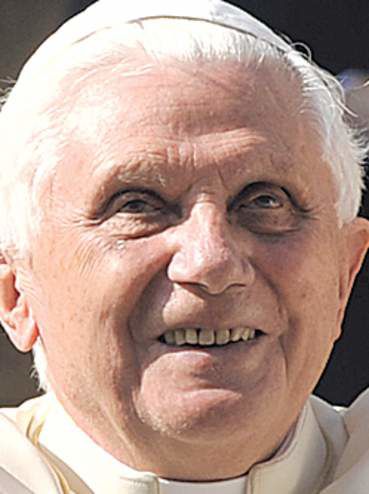Uphill fight for the pope in secular Czech Republic
Published 5:00 am Sunday, September 27, 2009

- Benedict XVI sought to reach out to the heavily secular people of the Czech Republic on Saturday, decrying the “wounds” left by atheistic communism.
PRAGUE — As Pope Benedict XVI arrived in the Czech Republic on Saturday on a three-day pilgrimage aimed at battling against the forces of secularism, religious leaders warned that he faced a daunting challenge in a nation of mostly natural-born skeptics.
When the pope comes to town, a city usually pulls out all the stops. Not so here in the Czech capital, where banners heralding the pope’s visit and large crowds were conspicuously absent. The local newspapers that highlighted the trip seemed more preoccupied with the pope’s penchant for bright red loafers than with the substance of his religious mission.
“If the pope wants to create a religious revival in Europe, there is no worse place he could come to than the Czech Republic, where no one believes in anything,” said Jaroslav Plesl, deputy editor of Lidove Noviny, a leading daily newspaper here. “Add to that the fact that the pope is German and socially conservative, and he might as well be an alien here.”
Twenty years after the fall of the Berlin Wall and the Velvet Revolution that overthrew communism in Czechoslovakia, the pope is visiting what many religious observers, unfairly or not, consider the ground zero of religious apathy in Europe. Vatican officials said he had chosen the Czech Republic for a mission central to his papacy: fomenting a continentwide spiritual revolt against what Benedict labeled Saturday as “atheist ideology,” “hedonistic consumerism” and “a growing drift toward ethical and cultural relativism.”
On his first trip here as pope, Benedict faces inevitable comparisons with Pope John Paul II, who in 1990 made Prague his first stop in the former Eastern Bloc after the fall of communism.
Yet while John Paul, who was Polish, is revered for his role in helping to overthrow communism, many Czechs said they were skeptical of Benedict, 82, who is widely viewed as being out of touch with contemporary concerns.
According to the latest census, fewer than 3 million of the country’s 10.5 million people identify themselves as Roman Catholics.






